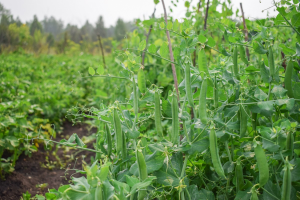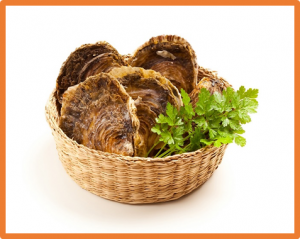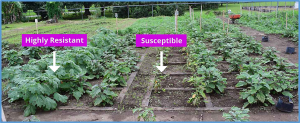Scientists from Peking University in China developed a highly confined gene drive model that involves the CifA and CifB genes found in the Wolbachia phage. They proposed new types of toxin-antidote gene drives that can be constructed with the genes using the information that no viable offspring is produced if a male with both the CifA and CifB mates with a female that has no CifA in her. The scientists highlighted the model's highly confined feature.
ISAAA Inc., in partnership with the Outreach Network for Gene Drive Research, launched a policy brief that tackles the importance of science-based and case-by-case risk assessment for gene drives. The policy brief, titled Risk Assessment for Gene Drive Organisms, is the first of a series that aims to present proposed policy options that address issues relating to gene drive technology. The following questions were answered in the first policy brief:
Brazilian researchers developed a line of transgenic common bean that was found to have a significant mortality effect against whitefly (Bemisia tabaci) while producing no effects on other insects. This can potentially provide farmers an alternative measure to combat the devastating pest without resulting to chemical pesticides. Whiteflies are vectors to viruses that can affect yield and grain quality of crops. It is also a common pest of the common bean, and farmers often use chemical pesticides to control it and the spread of disease.
Two separate studies by scientists led by the Roslin Institute of the University of Edinburgh in Scotland and the University of Santiago de Compostela in Spain found new information about the oyster's genome that can help improve its selective breeding approaches. The results can potentially help achieve food security and sustainability of the oyster industry.
Researchers at the University of the Philippines Los Baños (UPLB) led by Dr. Lourdes D. Taylo are using innovative technologies to develop improved eggplant varieties that are resistant to eggplant fruit and shoot borer (EFSB) and leafhopper (LH). The multi-disciplinary team is using genomics, IT-based phenotyping platforms, molecular marker technologies, and new breeding techniques to fast-track this development.
After a comprehensive study of plants across the U.S., researchers have concluded that plants able to fix atmospheric nitrogen are most diverse in arid regions of the country, which runs counter to the prevailing assumption that nitrogen-fixers, are comparatively most diverse in environments where soil nitrogen is limited. Plants incorporate nitrogen into nearly every structure and reaction that takes place in their cells
In 2021, the CRISPR/CRISPR-associated genes market was valued at US$1.56 billion. With a compound annual growth rate (CAGR) of 16.67%, the market is expected to reach US$3.73 billion by 2032, Market.us reported. CRISPR has a wide array of applications, particularly for genome editing. Its popularity has increased over the years since its discovery as a tool in genetics. Since then, CRISPR has been driving developments in genome editing across medicine and biotechnology.
Cure Rare Disease, a Boston-based nonprofit organization developing genetic medicines, has received approval from the Food and Drug Administration (FDA) to administer its CRISPR-based therapeutic that halts the progression of Duchenne muscular dystrophy. Duchenne muscular dystrophy is a rare genetic disease caused by a mutation in the gene responsible for dystrophin production. It can affect all muscle types and leads to loss of mobility and eventually to respiratory and cardiac failure. The disease impacts 1 in 3,500 males and is extremely rare in females.
Scientists from the Hunan University of Chinese Medicine reported the first successful genome editing of Poria cocos using CRISPR-Cas9 system integrating genome-wide off-target prediction and detection. Their findings are expected to support future researchers of the genetic breeding and commercial production of edible and medicinal fungi. Previous researchers using CRISPR-Cas9 have not identified endogenous RNA polymerase III promoters in P. cocos, hence there is little information known about its gene functional analysis.
Israeli scientists used smart engineering and optics to create sensors that light up when exposed to potato rot. This early detection of rot in potato can potentially inhibit the rot from spreading, reduce food wastage, and increase economic gain for potato farmers. The study was conducted by the Hebrew University of Jerusalem and Israel's Agricultural Research Organization (Volcani Institute). The sensor they developed has a bacterial compound that lights up when exposed to an infected potato.


 Curently online :
Curently online :
 Total visitors :
Total visitors :









